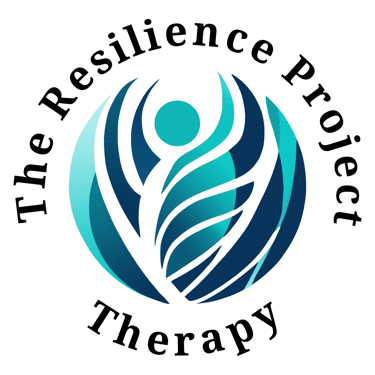How to Get Outside Your Comfort Zone and Grow as a Person
Discover the benefits and challenges of trying new things and facing your fears.
Christian Gray Hering, LCSW
10/25/20234 min read


I often encounter clients who feel stuck in their lives, unhappy with their current situation, or afraid of trying new things. They may have limiting beliefs about themselves, their abilities, or their potential. They may avoid challenges, risks, or opportunities that could help them grow and achieve their goals. They may prefer to stay in their comfort zone, where they feel safe and familiar, but also bored and dissatisfied.
What is the comfort zone?
The comfort zone is a psychological state where you operate in an anxiety-neutral condition, using a limited set of behaviors to deliver a steady level of performance,
usually without a sense of risk (1). It is the patterned world of your existence, where you meet your basic needs and avoid stress and anxiety (2).
While creating a comfort zone is a healthy adaptation for much of our lives, it can also become a trap that prevents us from reaching our full potential. Staying in your comfort zone can lead to stagnation, complacency, and resistance to change (1). It can also limit your creativity, productivity, and happiness (3).
Why should you get out of your comfort zone?
Getting out of your comfort zone means pushing yourself to do something that challenges you, scares you, or makes you uncomfortable. It means expanding your boundaries and trying new things. It means facing your fears and overcoming your limitations.
Getting out of your comfort zone can have many benefits for your personal and professional growth. Here are some of them:
It increases your productivity. When you decide to take on a new challenge or try a different approach to something familiar, you can create conditions for improving productivity (4). You may get a better understanding of your true potential, feel confident in handling more responsibilities, and deliver better results.
It improves your ability to adapt. New experiences can help you become better at dealing with the unfamiliar (4). You may stay composed and focused when a new challenge presents itself and improve your decision-making abilities in these situations.
It promotes growth. Regardless of the outcome, you may expand your experience, knowledge, and skills when you leave your comfort zone (4). This can lead to professional and personal growth. You may also discover new passions, interests, or talents that you didn’t know you had (5).
It boosts your self-esteem. When you overcome a challenge or achieve something that you thought was impossible, you may feel proud of yourself and more confident in your abilities (6). You may also gain respect and admiration from others who witness your courage and success.
It enhances your happiness. When you step out of your comfort zone, you may experience more excitement, joy, and satisfaction in life (3). You may also enter the flow state, where you are fully immersed and engaged in what you are doing (1). This can increase your happiness and well-being.
How can you get out of your comfort zone?
Getting out of your comfort zone can be scary and difficult, but it can also be rewarding and fun. Here are some tips to help you get started:
Discover more about potential challenges. The more you know about a new challenge or situation, the less scary it may seem (4). You can research online, read books, watch tutorials, or talk to experts to learn more about what you want to try.
Devise a plan. Next, create an action plan to expand your boundaries (4). Set specific, measurable, achievable, relevant, and time-bound (SMART) goals for yourself and break them down into manageable steps. For example, if you want to learn a new language, you can set a goal to complete a certain number of lessons per week and practice with native speakers online.
Seek support. You don’t have to do it alone. You can find people who share your interests or goals and join them in pursuing them (7). You can also ask for help or advice from friends, family members, mentors, or professionals who have done what you want to do or who can encourage you along the way.
Challenge yourself gradually. You don’t have to jump into the deep end right away. You can start with small steps that are slightly outside your comfort zone and then gradually increase the difficulty or intensity as you gain confidence and competence (7). For example, if you want to overcome your fear of public speaking, you can start by practicing in front of a mirror, then with a few friends, then with a larger audience.
Embrace uncertainty. One of the biggest obstacles to getting out of your comfort zone is the fear of the unknown (6). You may worry about what will happen if you fail or if things don’t go as planned. However, instead of focusing on the negative outcomes, try to embrace uncertainty as an opportunity for learning and growth (8). Remember that failure is not final but feedback that can help you improve.
Celebrate your achievements. When you accomplish something that you have never done before or that you thought was impossible, make sure to celebrate your achievement and reward yourself (6). You can also share your success with others who supported you or who can appreciate your efforts. This can boost your motivation and self-esteem and inspire you to keep challenging yourself.
Getting out of your comfort zone can be one of the best things you can do for yourself. It can help you grow as a person, achieve your goals, and enjoy life more. So, what are you waiting for? Take the first step today and see what amazing things you can do.
Source list:
https://www.psychologytoday.com/us/blog/in-flux/201512/5-benefits-stepping-outside-your-comfort-zone
https://lifehacker.com/the-science-of-breaking-out-of-your-comfort-zone-and-w-656426705
https://www.indeed.com/career-advice/career-development/getting-out-of-your-comfort-zone
https://londonroutine.com/10-huge-benefits-of-stepping-outside-of-your-comfort-zone/
https://environmental-conscience.com/comfort-zone-pros-cons/
https://www.realsimple.com/how-to-get-out-of-your-comfort-zone-7559829
https://www.forbes.com/sites/forbescoachescouncil/2019/04/25/getting-outside-of-your-comfort-zone/
The Resilience Project Therapy
Mailing
P.O. Box 832182
Richardson, TX 75083
Contacts








